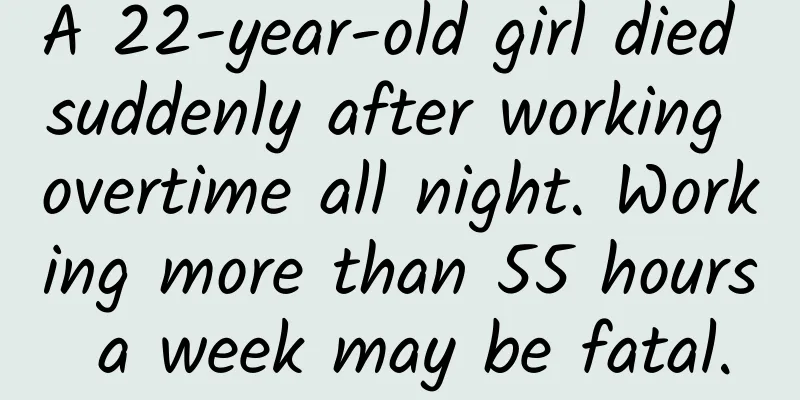Don’t miss the “golden time” for these 5 things. Breakfast, exercise, and bathing will double your benefits…

|
Everyone wants to do the right thing at the right time, and this is also true for healthy living. Therefore, whether it is eating, drinking, bathing, exercising or other daily behaviors, many people begin to struggle with what time period is best for doing it? Life is not static, so there is no fixed time to do what, but some things do have a "better time" that can benefit you more. You might want to learn about it! The ideal time to eat breakfast The more you nourish your stomach, the better You have to have a good breakfast , but did you know that there are also some rules for eating breakfast. Around 7 o'clock in the morning, even if you are still in bed, your stomach and intestines start to work, and the stomach and intestines are in a period of efficient absorption of nutrients. In addition, the secretion of gastric acid and digestive enzymes needs to be neutralized by breakfast, otherwise it is easy to damage the gastrointestinal mucosa. In addition, experts from Tel Aviv University in Israel pointed out that the time of eating breakfast affects a "biological clock gene" that regulates blood sugar and insulin response after a meal, which is linked to obesity and type 2 diabetes, hypertension and cardiovascular disease. Eating breakfast before 9:30 in the morning can reduce the risk of obesity and diabetes . Copyright image, no permission to reprint Therefore, the best time to have breakfast is between 7:00 and 9:30 . Eating apples at this time is more beneficial Blood sugar regulation It is said that there are golden apples in the morning, silver apples at noon, and poisonous apples in the evening. Is this true? In fact, from the nutritional value point of view, whether you eat apples in the morning, at noon or at night, the nutritional value of apples does not change, so you can eat them at night without worry. However, it is not recommended to eat them immediately after a meal or before going to bed . However, from the perspective of controlling blood sugar, there is a time when eating apples is beneficial for lowering postprandial blood sugar response - that is 30 minutes before a meal. 1. Eating an apple 30 minutes before a meal is good for blood sugar control An experiment compared the blood sugar response by comparing three control groups: "eating rice directly, eating rice and apples at the same time, and eating apples 30 minutes before eating rice". The results were: ① Eating only white rice resulted in the highest blood sugar response . Eating white rice and apples together reduced the blood sugar area under the curve by 23% in the first two hours. ② For the group that ate apples 30 minutes before meals, the area under the blood sugar curve decreased the most in the first two hours (up to 51%), and the blood sugar fluctuation value within 4 hours after the meal was also reduced by half . Copyright image, no permission to reprint In addition, the experiment also pointed out that among the three fruits, oranges, apples and pears, apples have the most obvious effect in controlling sugar levels , because the chromium in them can activate insulin; pectin can delay the absorption of carbohydrates; and flavonoids can reduce insulin blockage and help improve blood sugar regulation. It should be noted that the diet of eating fruit before meals is only limited to people with normal gastrointestinal digestive function . Exercise in the morning and evening The benefits are different Life is about movement. Maintaining moderate exercise can promote blood circulation throughout the body, enhance cardiopulmonary function, increase basal metabolic rate, enhance resistance and immunity , and also relieve stress . But many people are confused about whether it is better to exercise in the morning, at noon, or at night? In fact, there are two suitable times for exercise, but the benefits are slightly different: 1. Exercising in the morning is better for fighting cancer and controlling blood sugar ①A study published in the International Journal of Cancer found that regular exercise between 8 and 10 a.m. every day is beneficial to normal circadian rhythm (circadian rhythm disorders are related to cancer), thereby helping the body reduce the risk of cancer. Studies have shown that midday and/or afternoon exercise delays the onset and peak of the melatonin rhythm, which has broad anti-cancer effects. Therefore, morning exercise may have a greater anti-cancer effect than midday/afternoon exercise. ②A study by the Center for Basic Metabolic Research at the University of Copenhagen showed that carbohydrate metabolism in the liver is enhanced during early morning exercise , thus achieving better sugar control effects . Copyright image, no permission to reprint But be careful not to exercise excessively on an empty stomach to avoid hypoglycemia. 2. Exercising at night may be more effective in losing weight Exercising in the early morning can stimulate the decomposition of fat in the liver, while exercising in the evening can stimulate the decomposition of white adipose tissue . After exercising in the evening, the level of acylcarnitine in the muscles increases, mobilizing fat decomposition, which may be more suitable for people who want to lose fat. You are not thirsty during these 3 time periods Drink water appropriately Water is the source of life and is also good for human health - a six-year study published in the American Journal of Epidemiology found that people who drank five glasses of water a day were 41% less likely to die from heart disease than those who drank more than two glasses a day. Moreover, drinking enough water is also good for the liver and kidney functions , and these organs can help remove toxic and harmful metabolic waste and help improve your immunity. There is no best time to drink water. According to the dietary guidelines of the Chinese Nutrition Society, healthy people are recommended to drink 1500-1700 ml of water every day, about two or three sips every 30 minutes or so. Don't wait until you are thirsty to drink. What we really need to pay attention to is that even if you are not thirsty, you should drink water appropriately during these time periods! Copyright image, no permission to reprint 1. Drink before going to bed The human body's blood viscosity also has a biological clock, and is generally highest from midnight to 10 a.m. the next day. Appropriate water intake before going to bed at night can help reduce blood viscosity . 2. Drink when you get up at night When we fall asleep, blood flows slowly and the heartbeat is also slow. At this time, especially for people with thick blood, diabetes, hypertension, and coronary heart disease, blood circulation is relatively slower and more likely to form blockages, obstructions, or emboli. Therefore, drinking a few sips of water when you get up at night can act as both a lubricant and a propellant. 3. After getting up in the morning When sleeping at night, the human body consumes a lot of water through urine, skin, breathing, etc., and will be in a state of dehydration after getting up. Drinking water in the morning can replenish the water lost in the body's metabolism . It can also promote gastrointestinal motility and prevent constipation . Taking a bath at night has a "sleep-aiding" time Taking a bath before going to bed not only washes away the dust and dirt of the day, but also helps eliminate fatigue and improve sleep quality . A study published in Sleep Medicine Reviews showed that bathing only improves sleep quality and efficiency during "specific time periods." Copyright image, no permission to reprint 1. The “golden time” for bathing A study in Sleep Medicine Reviews reviewed 5,322 studies on bathing sleep and concluded: ① Taking a hot bath 1 to 2 hours before going to bed can significantly shorten the sleep latency period , speed up the speed of falling asleep by an average of 10 minutes, and improve the quality of sleep. ② Taking a bath 2 hours or earlier before going to bed may induce drowsiness , but it will not significantly shorten the sleep latency . ③The researchers further analyzed the optimal water temperature for bathing. They used two different water temperatures (41°C and 35.5°C) for bathing 5 hours or more before bedtime. An increase in pre-bedtime sleepiness was observed at 41°C, but no increase in pre-bedtime sleepiness was observed at 35.5°C. Therefore, it is recommended to take a bath with water temperature around 41°C 2 hours before going to bed . Review | Li Nannan Director of Hunan Science Writers Association, Deputy Director of Research and Publicity Department of Hunan Science and Technology Association, Second-level Researcher, Chinese Science Writer (Medical Field) Source: I am a great doctor official account The cover image and the images in this article are from the copyright library Reproduction of image content is not authorized |
<<: Are you also staying up late to retaliate? The night is so beautiful, but it is also dangerous!
>>: There is a kind of pain called trampling, teach you how to avoid danger in an emergency
Recommend
A complete guide to marketing on Xiaohongshu!
Before major marketing events, how to quickly and...
There is still a lot of hurdles for VR movies to overcome.
For most people, virtual reality movies can be de...
Momo's new growth point and monetization rules
In the past ten years, Momo has still not been ab...
It’s really terrible: Not everyone can collect nectar from this common little flower!
Welcome to Northern Plants. Today I’d like to int...
2-Minute Coding Tip: Don't Use Loops in Your Code
Instead of writing for or while loops, you should...
Does Nintendo Switch, which is three years late to enter the Chinese market, still have a chance?
About three years ago, Microsoft's XBOX ONE e...
[A magic tool for watching movies anytime, anywhere] PaPa Pocket Cinema Review
Product highlights: small and portable, built-in ...
Google: 2020 Smart Digital City Report - Citywide AI (136 pages)
Google Hong Kong today released the first edition...
This disinfectant should never be put together with laundry detergent, because...
Every time I wash clothes, I want to wash my unde...
Security robot "commits suicide" - Is artificial intelligence a blessing or a curse for humans?
Recently, in an office building in Washington, th...
up to date! Data rankings of 60 information flow advertising platforms!
Today I bring you the latest traffic rankings of ...
Baidu search promotion "crowd targeting" upgrade introduction
In order to better reduce the operation and learn...
A complete information flow advertising delivery process
With the vigorous development of mobile Internet,...
Another addictive "Three Kingdoms" "Tower Three Kingdoms" first experience
Screen: operate: Sound Effects: Plot: Experience:...
Zhangping SEO training: What kind of SEO is reliable? Is search engine optimization good?
Although there are many corporate website constru...









